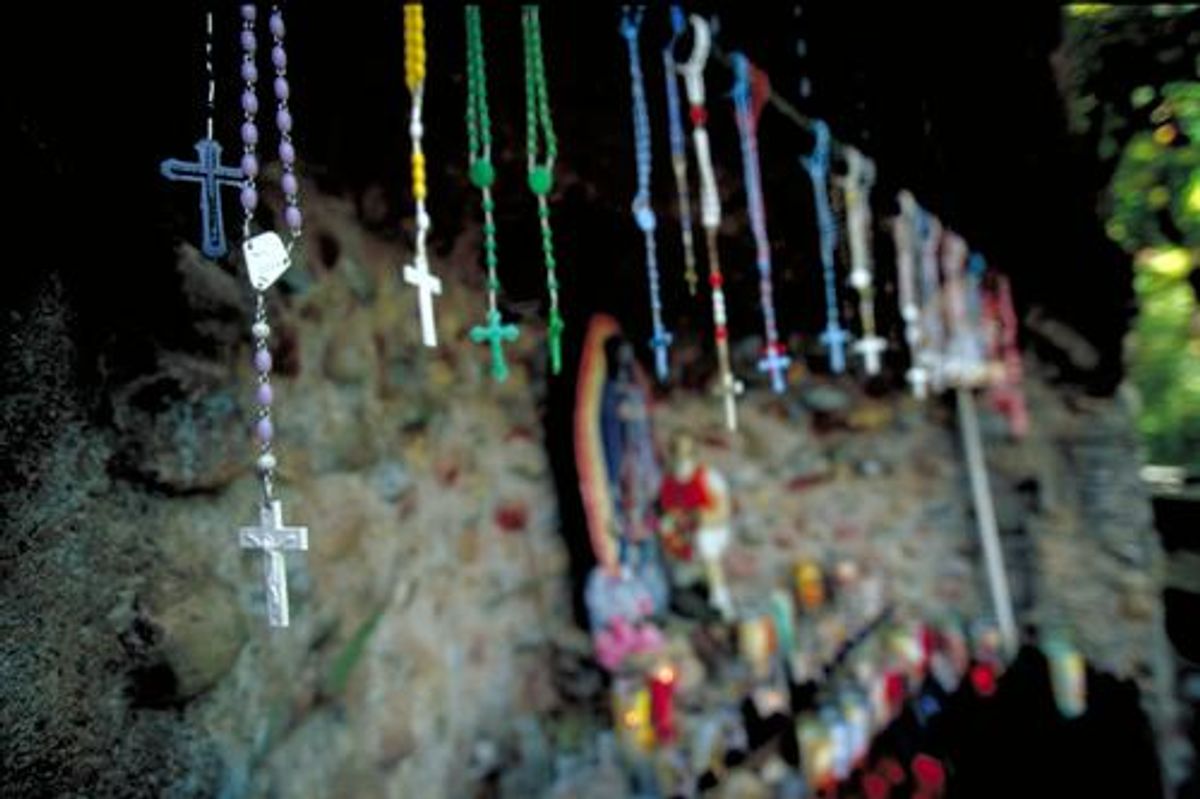In the Venezuelan city of Caracas, bottled water has become such a valuable resource that it retails at twice the price of gasoline. That's because Lake Mariposa's 60-year-old treatment plant, Bloomberg News reports, is too outdated to contend with the dead dogs and other detritus being dumped into the reservoir by a local cult.
Over the past ten years, according to Bloomberg, Mariposa has gone from a popular beach and boating spot to a haven for followers of Santeria, a religion that combines West African and Christian beliefs:
Caracas residents pay 30 bolivars ($4.80) for five gallons of filtered water delivered in jugs by trucks once a week. The same volume of gasoline costs 14 bolivars, making it the cheapest fuel in the world, according to data compiled by Bloomberg.
In the meantime, witch doctor [Francisco] Sanchez, is left free to practice his water-polluting rituals.
“No one is bothering me here at all,” Sanchez, 42, said as he prepared a chicken for sacrifice later in the day. “I moved here two years ago because I wanted to get deeper into witchcraft. People come to worship every evening from the city.”
The reservoir was last cleaned four years ago, unearthing dozens of animal carcasses, said Inmer Parra, a councilor at the Los Salias municipality, home to the lake.
Larger systemic issues are keeping bottled water a hot commodity. The country's manual pumping system, for example, is also contributing to the problem by preventing enough water from reaching Caracas. While Hidrocapital, which controls the water monopoly, guarantees on its website that the water that makes it to people's homes is "100 percent potable," experts told Bloomberg that the technology needed to fully eliminate potential viruses just doesn't exist in Venezuela.
The government's attempts to lower the prices of bottled water, meanwhile, may be leading some companies to "cut corners" on filtering. According to some sources, “Even people in the slums are investing in in-house filters to be on the safe side.” Cans of Coca Cola, as Bloomberg points out, are more affordable -- and they're probably safer, too.



Shares